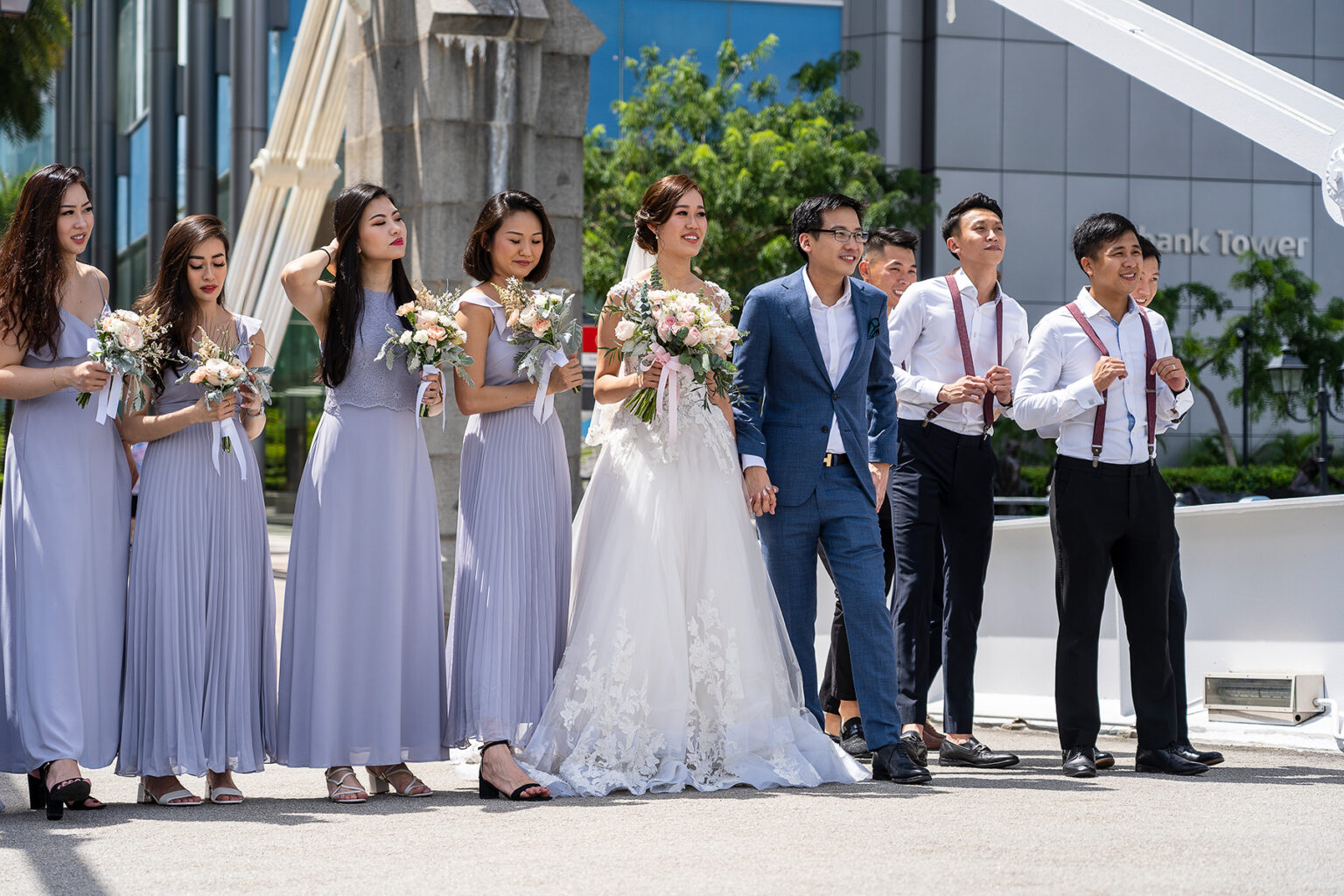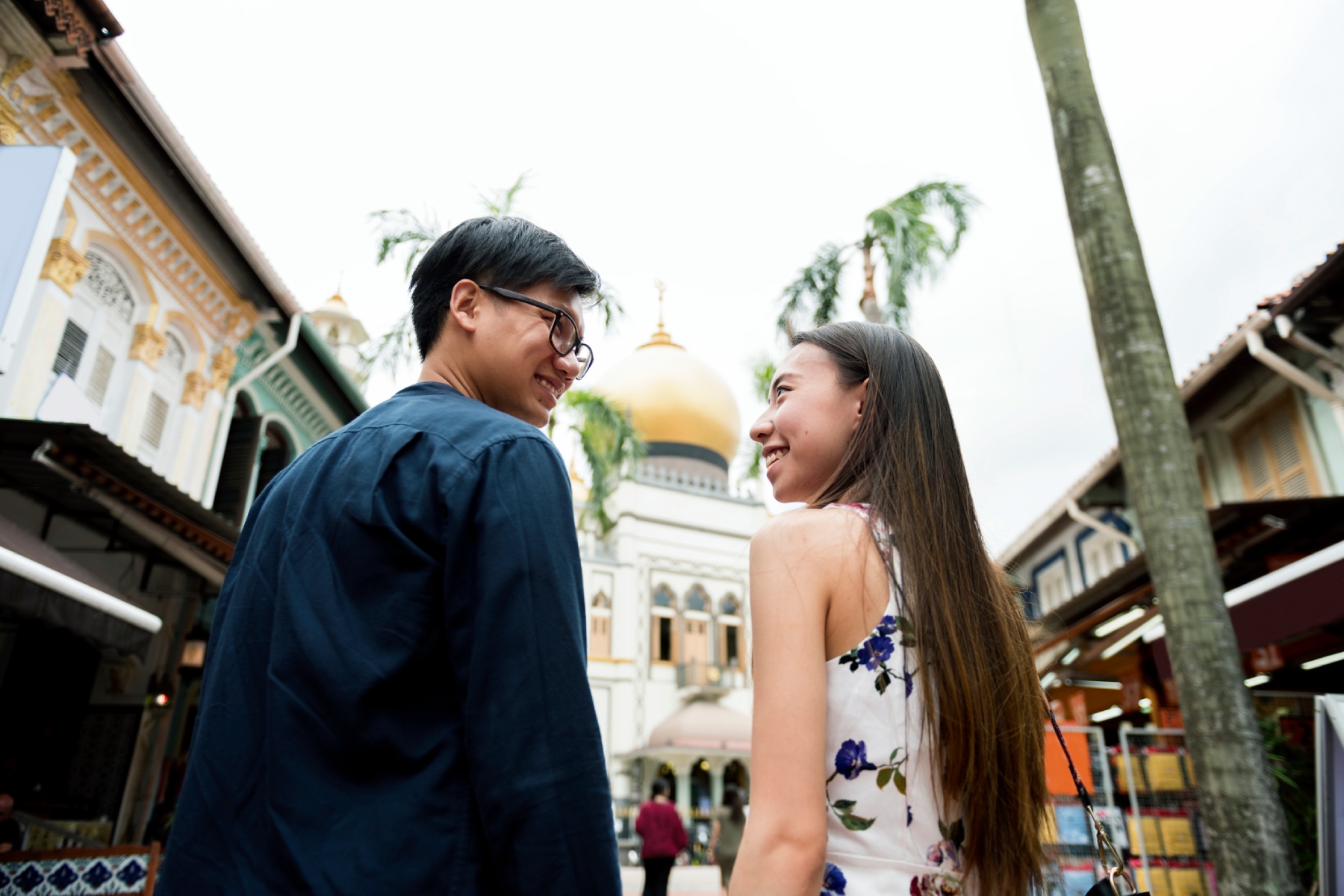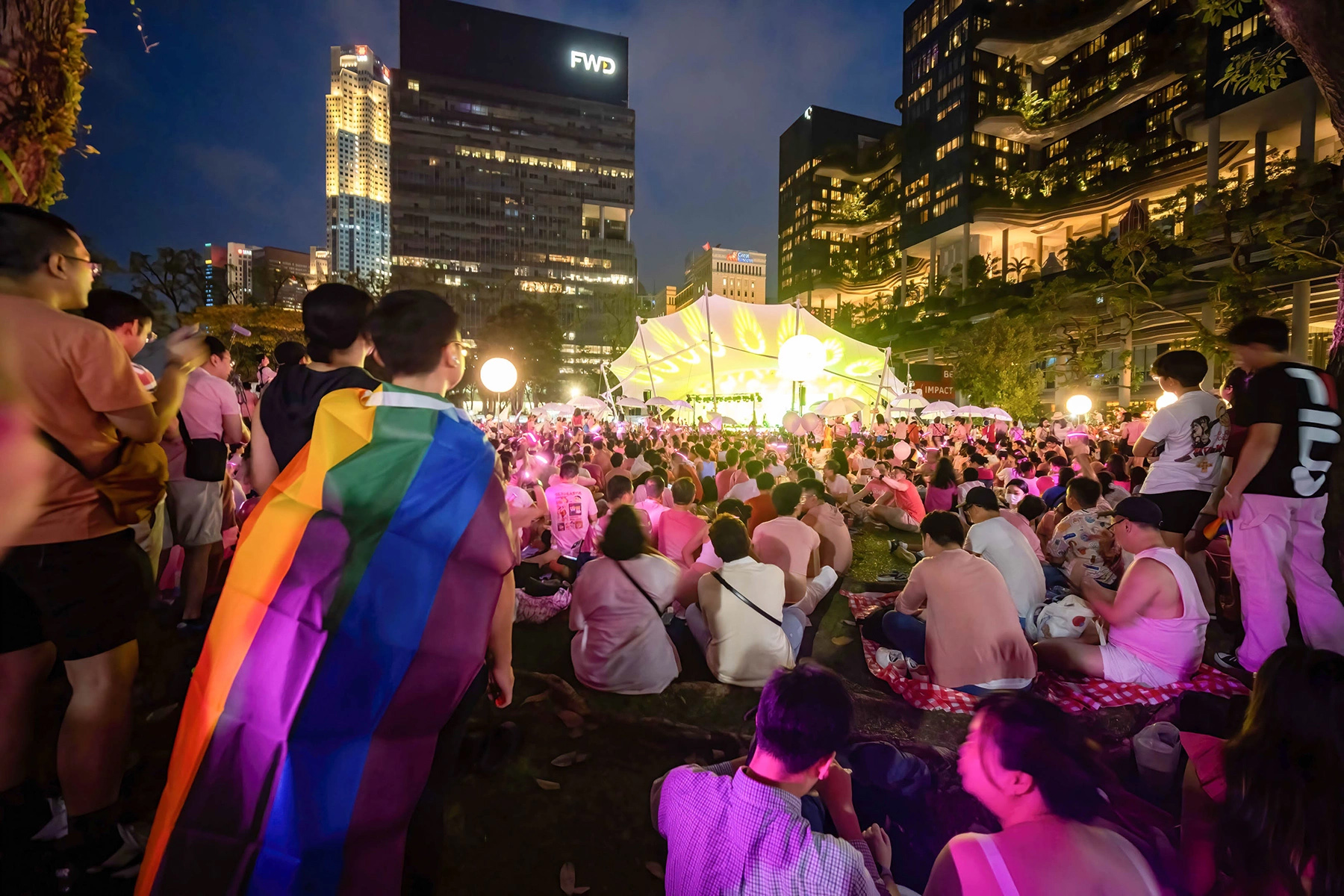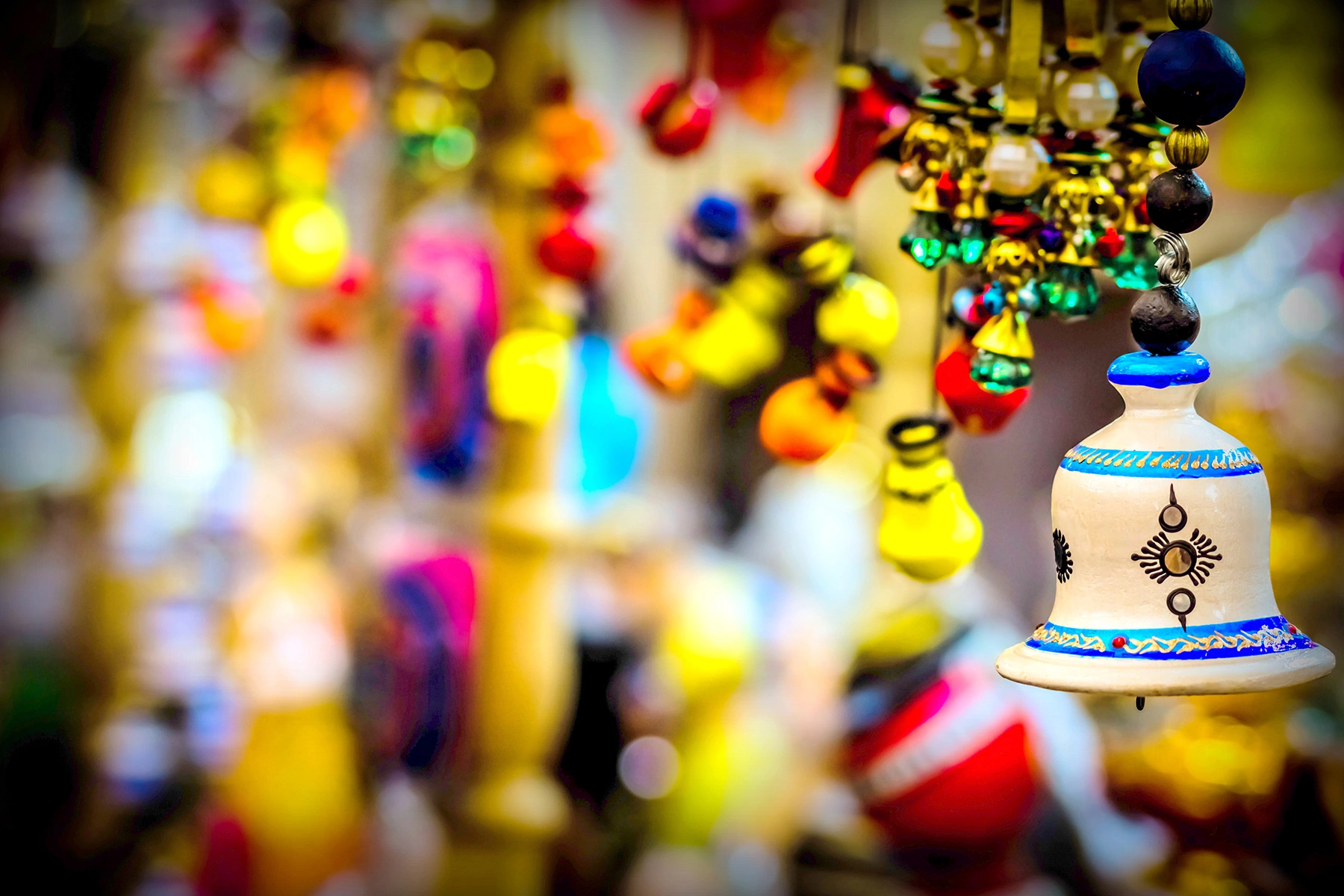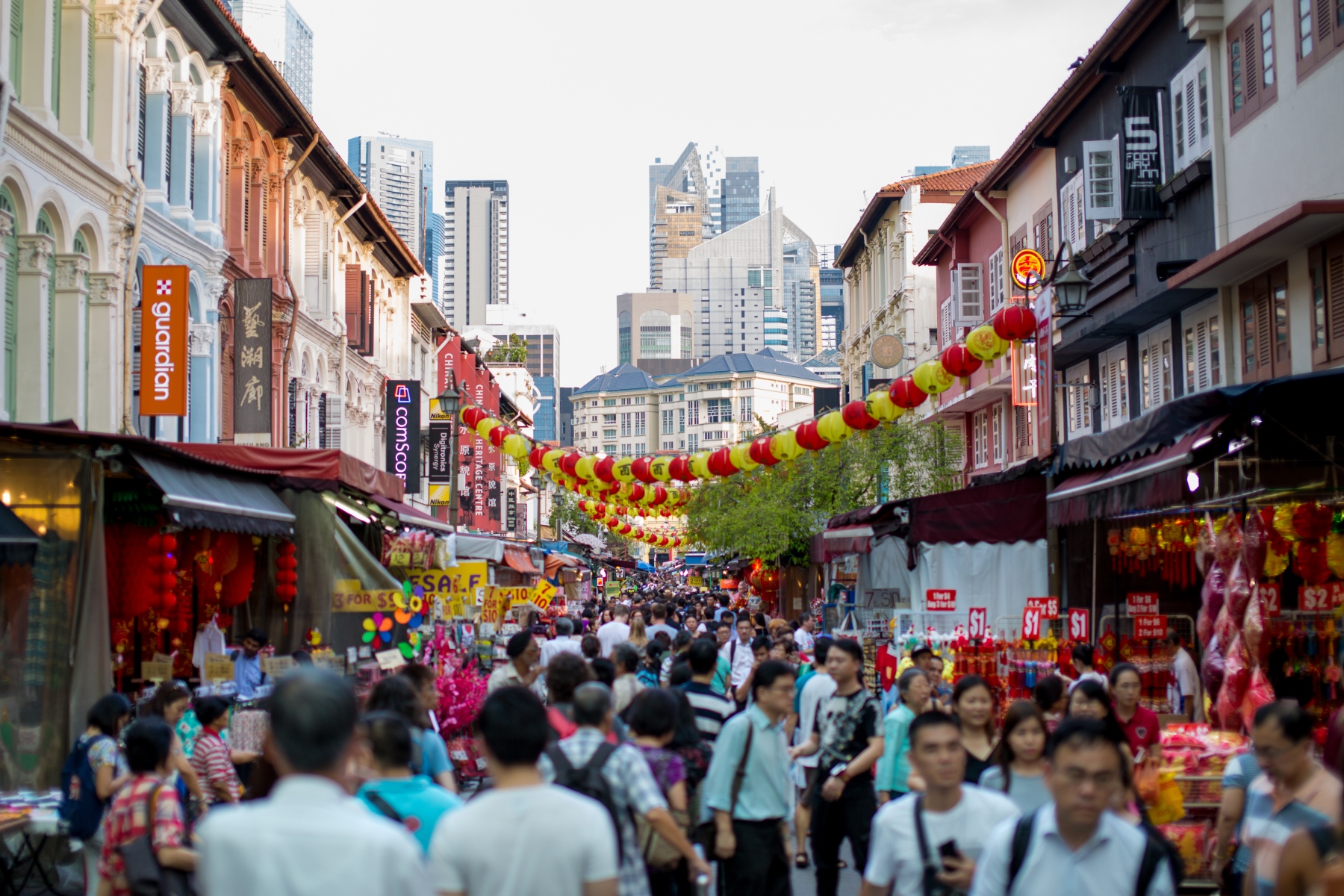For expats who have found ‘the one’ in Singapore, marriage may be something to consider. Although the Lion City requires couples to complete various administrative procedures to legalize their partnership, the process is not overly difficult.
But planning a wedding ceremony in Singapore? Well, that is as complicated as you want it to be! Understand what it takes to organize your Singaporean wedding by exploring the following topics:
- An overview of marriage in Singapore
- What types of weddings are possible in Singapore?
- Gay marriage and same-sex partnerships in Singapore
- Civil/domestic partnerships in Singapore
- What are the legal requirements in Singapore to get married?
- Wedding planning in Singapore: step by step
- Which expenses should you consider when getting married in Singapore?
- Which are the best wedding venues in Singapore?
- Are there any typical wedding traditions and customs in Singapore?
- Useful resources
An overview of marriage in Singapore
Singapore sees a large number of marriages. Indeed, in 2022, there were 29,389 weddings in Singapore, an increase of 3.7% from the previous year. In fact, this is the highest number of marriages in one year since record-keeping began in 1961.
However, it appears people are waiting a little longer to tie the knot in the Lion City. The average age of a bride and groom at a Singapore wedding is 29.3 and 30.7, respectively, up from 28 years and 30.1 years a decade earlier.
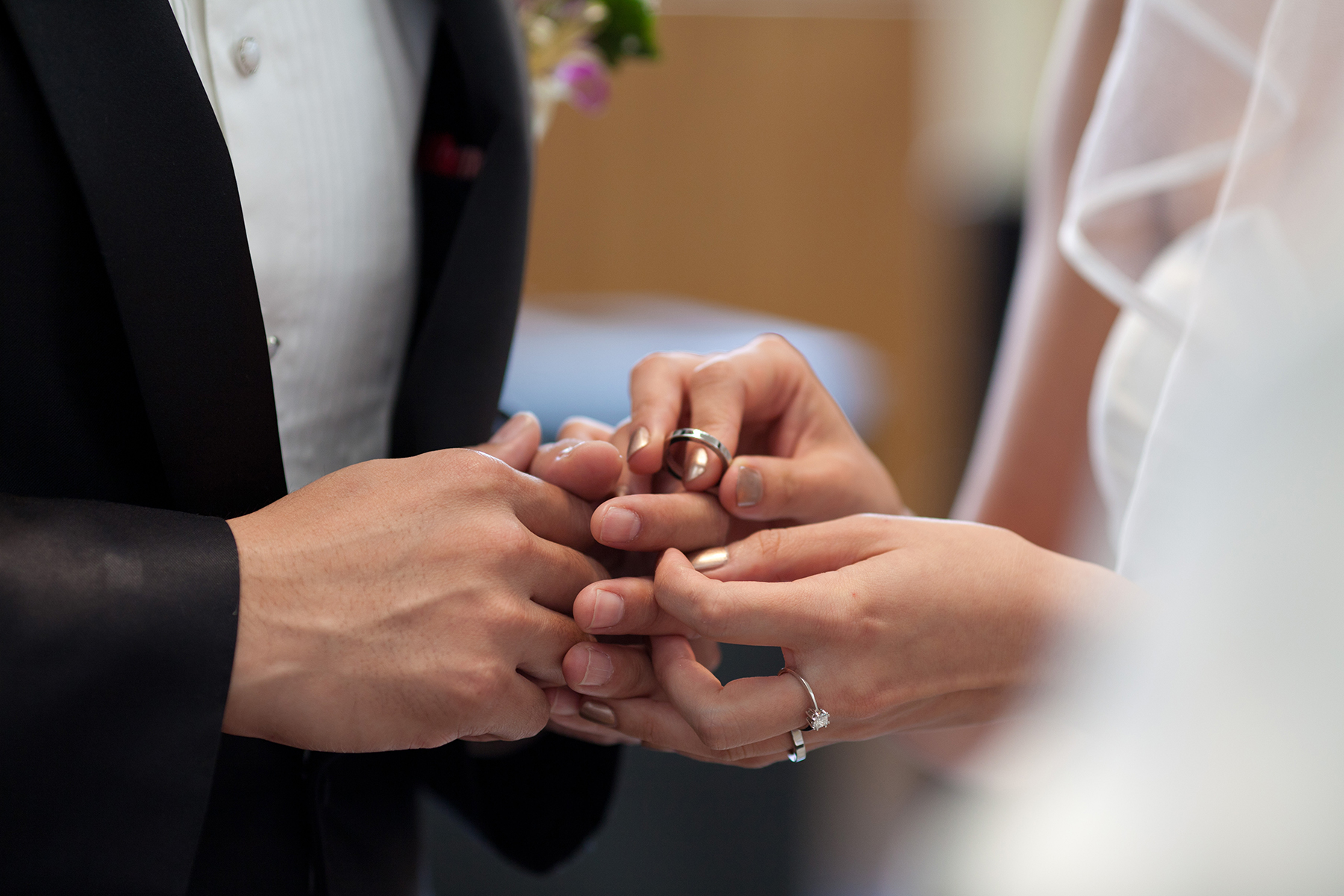
Of course, there are several reasons for putting off marriage. Many young residents are delaying their Singapore wedding due to financial pressures. They simply feel they do not have the monetary resources to host the kind of wedding they want, cohabit, and raise children in the traditional manner.
Another factor is the COVID-19 pandemic. In 2020 and 2021, the Lion City saw plenty of social distancing and lockdowns that made a wedding nearly impossible. Nevertheless, as restrictions began to ease in 2022, many couples took the opportunity to marry. The fact that many had previously booked wedding packages that could not be extended further was another push for the record number of marriages in 2022.
What are the general attitudes toward marriage in Singapore?
In general, Singaporean society and culture is quite traditional and patriarchal. As such, most residents, especially those born and raised in the city, do not tend to rock the boat. Because of this, there is a significant expectation for young Singaporeans to marry.
In fact, there are even political, practical, and social pressures. For example, if you are single, you cannot buy a government-subsidized HDB (Housing Development Board) flat until you the age of 35.
Perhaps because of all of this, a recent survey found that 80% of single respondents between the ages of 21 and 35 said they intended to marry. That said, this is a decrease from 83% in 2016 and 86% in 2012, suggesting more openness to remaining single or in de facto partnerships.
In addition, some 75% of respondents view working and having a career as just as important as having a family. On the other hand, 14% said having a family was more important than their career.
As to how these residents are finding partners for their Singaporean wedding – well, that is evolving, too. 58% of the survey’s respondents said they would be comfortable meeting their partners through online dating, up from 43% in 2016 and 19% in 2012. Regardless of these figures, 90% would still prefer to meet organically in social settings.
However, gay weddings in Singapore are still a while away. Despite decriminalizing gay sex, Singapore’s government made some small amendments to the constitution to make it difficult to legalize same-sex marriage. Official policy aside, local attitudes towards the LGBTQ+ community have generally become more liberal.
What types of weddings are possible in Singapore?
Legally, a Singapore wedding must have a civil solemnization to be valid, which means an official solemnizer from the Registry of Marriages (ROM) must officiate the wedding. However, as long as an official solemnizer is present, couples may choose between a purely civil ceremony or one that incorporates religious traditions.
Finding an English-speaking solemnizer in Singapore is simple because almost everyone in the country speaks fluent English. Furthermore, couples can easily book a solemnizer through the ROM’s website.
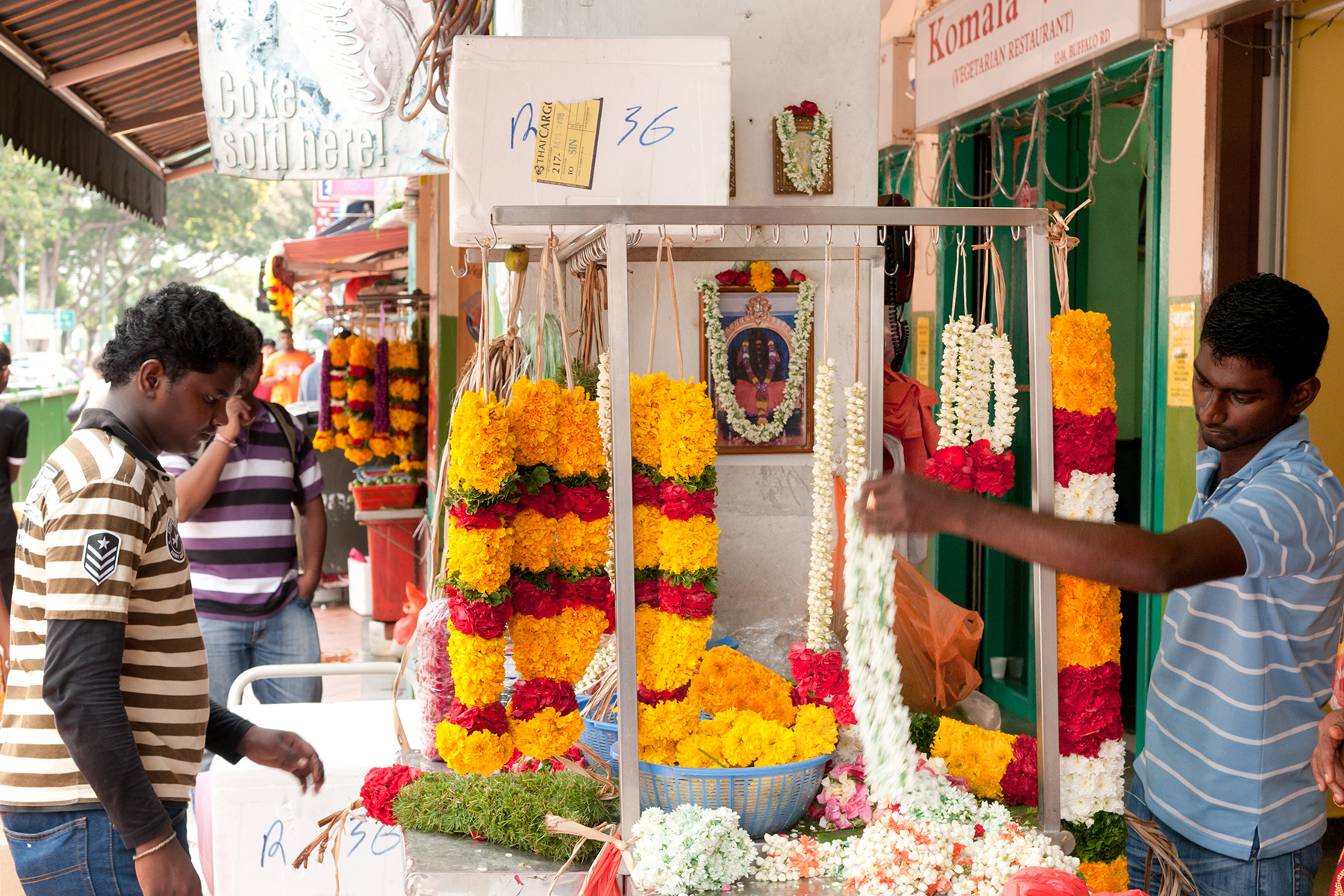
In Singapore, a legal wedding officiant can be a civil servant. But, in many cases, ministers of faith have permission to perform civil ceremonies alongside religious rituals.
Civil ceremony
A wedding in Singapore is only legal if there is a civil solemnization. A volunteer solemnizer with governmental approval performs a brief ceremony and officially registers the marriage.
Traditionally, the civil ceremony occurs at the Registry of Marriages near Fort Canning Park. However, couples can hold the ceremony in a different location as long as they invite a solemnizer to officiate and handle the legal documents.
Religious ceremony
Many couples in Singapore choose to combine their civil wedding with traditions and rituals from their religion. Due to the diversity of the country’s population, ceremonies might follow Catholic, Anglican, Chinese, Tamil, Hindu, or Peranakan traditions. A minister from the couple’s religion (or religions) officiates the ceremony and, if they are registered as a solemnizer, can also oversee the legally binding civil formalities.
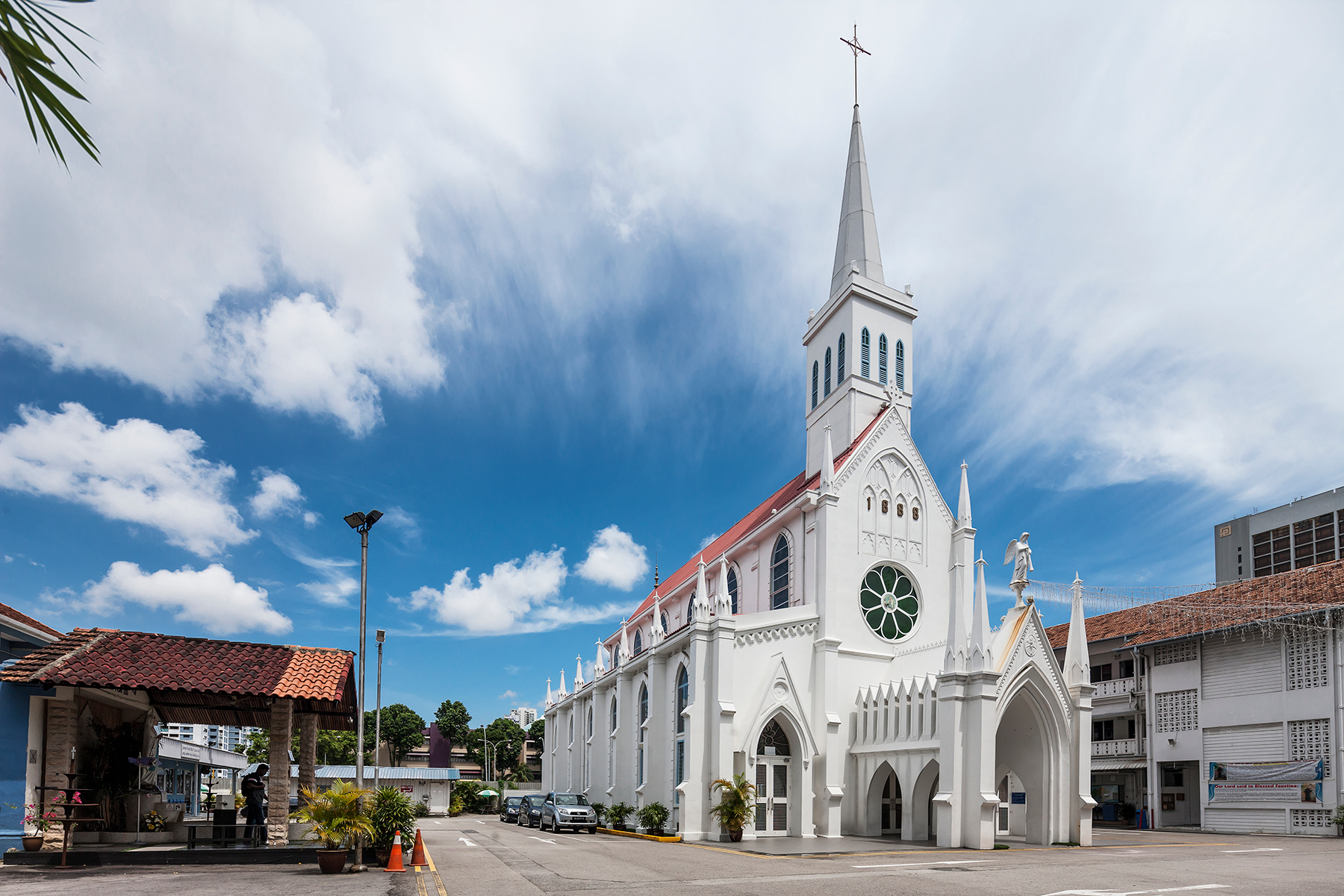
Often, the religious ceremony occurs in the particular religion’s place of worship. For example, Catholic services may happen in a church, while Hindu or Jewish weddings may occur in a temple from each respective religion.
Muslim ceremony
Singapore has a particular process for couples who wish to marry under the Muslim religion. Although it is a longer process, a legal Muslim wedding adheres to Sharia law. This is different from the traditional civil ceremony, but couples who want to legally marry in the Muslim faith must follow this process.
Gay marriage and same-sex partnerships in Singapore
Singapore is slowly gaining more liberal attitudes towards the LGBTQ+ community, and this is apparent in the country’s laws, too. In 2022, the Singapore government decriminalized gay sex by repealing its colonial-era 377A law. At the same time, though, the country retained its definition of marriage as only being between a man and a woman.
As such, gay marriage is still not legal in Singapore, and same-sex partnerships are neither legal nor recognized in the country.
Civil/domestic partnerships in Singapore
Technically, Singapore does not recognize civil or domestic partnerships, and therefore, de facto couples do not get any legal recognition. For example, civil partners:
- Get no tax benefits
- Do not benefit from traditional inheritance laws
- Cannot get most types of dependency visas (though a de facto visa is possible)
In addition, any children of civil partnerships are deemed illegitimate – one or both parents must adopt the child to create a legal relationship.
What are the legal requirements in Singapore to get married?
Requirements and rights
In order to have a wedding in Singapore, couples must meet certain legal requirements. These include:
- Being at least 21 years of age
- Prove no lawful impediments, such as an existing marriage
- Notify the ROM of the intention to marry at least 21 days beforehand (or within three months of the intended wedding)
- Making a statutory declaration of the dissolution of a previous marriage and any existing maintenance orders (for those previously married)
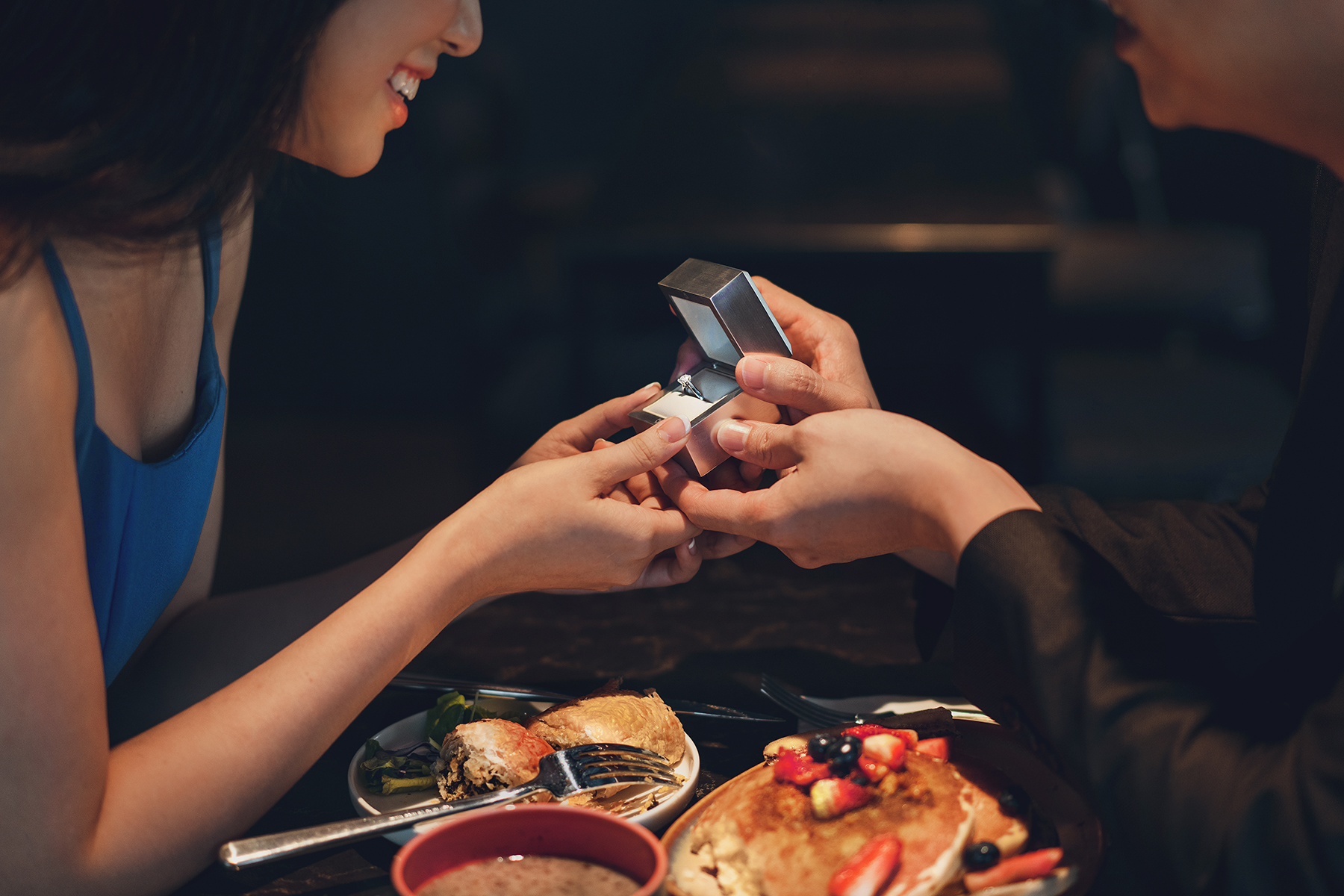
Muslim couples must also meet the following requirements:
- Both parties must be Muslim.
- If one party has converted to Islam, they must have the official permanent conversation certificate from the Muslim Convert’s Association of Singapore.
- Receive consent from the wali (bride’s lawful guardian).
In addition, all foreigners must do the following:
- Be present in Singapore for at least 15 days continuously before filing the marriage application.
- If the marriage is between a Singapore citizen and a national of another country, it’s advisable to undergo the optional Pre-Marriage Long Term Visit Pass Assessment by the Immigration and Checkpoints Authority to find out if you can get a visa to stay in Singapore after the marriage.
- Foreigners holding a Singapore work visa will need approval from the Ministry of Manpower before submitting a marriage application with a Singapore citizen or permanent resident.
What paperwork and documentation do you need to provide?
To have a legal Singaporean wedding, couples must present numerous documents and file the right paperwork. Although it can be time-consuming, it is crucial to get it right so that the marriage is legal. These are the documents the ROM requires:
- The couple’s original passports
- The IDs or passports of two witnesses over the age of 21
- Passport stamps to prove that at least one half of the couple has been in Singapore for 15 days before filing the notice of marriage
- A certificate of no impediment from the relevant embassy or government authority to show there is no obstacle to the marriage – requires the couples’ names, birthdays, nationalities, religions, and passport numbers (this should be authenticated by the Singapore Consulate in your home country and your home embassy in Singapore)
- A marriage record search or marital status letter from your current country of residence
- Original divorce or annulment paperwork (if applicable)
- Original certificate of marriage and death certificate (for widows/widowers)
- Invitation to Solemnize a Marriage form signed by your chosen solemnizer
In addition, all documents must be in one of Singapore’s official languages. Therefore, any document that is not in English, Mandarin, Tamil, or Malay needs an official translation into English.
Wedding planning in Singapore: step by step
A Singapore wedding does not just happen – couples must plan appropriately. There are several steps to the process, and each one has several parts. So, here is exactly what you will need to do to marry in Singapore.
1. Decide on the type of wedding
The first step in planning a Singapore wedding is to decide on exactly what type of wedding you want. Of course, you will need a civil ceremony to legalize the marriage. In addition, you must decide whether you want a religious ceremony. All of this can help you with the rest of the wedding planning, such as organizing the guest list and picking a date and place.
2. Pick a date and location
After deciding what kind of wedding you want, you will need to zero in on a date and location. Will you choose a relaxed, outdoor wedding at a park or beach or a ritzy ceremony in a lavish hotel ballroom? Perhaps you want an opulent religious wedding in a big church.
As for dates, expats may want to choose one around the school holidays so friends and family can attend the wedding. Luckily, you won’t have to worry too much about the weather, as Singapore is always hot –you may want to think about rain, though!
3. Complete all the administration
No matter where, when, or how you have your Singaporean wedding, you will need all the paperwork and legal processes in order. Here is what you need to remember:
Before the wedding:
- Notify the ROM of your intent to marry between three months and 21 days before the ceremony.
- Attend an optional marriage preparation program.
- Choose a date, time, and place for your solemnization.
- Pick two witnesses (over 21 years) to attend the solemnization and legalize your marriage.
- Book a solemnizer/officiant.
- File your marriage application with all the necessary documents.
- Attend an appointment at the ROM to verify your documents and sign the Statutory Declaration.
- Complete the solemnization and receive your marriage certificate.
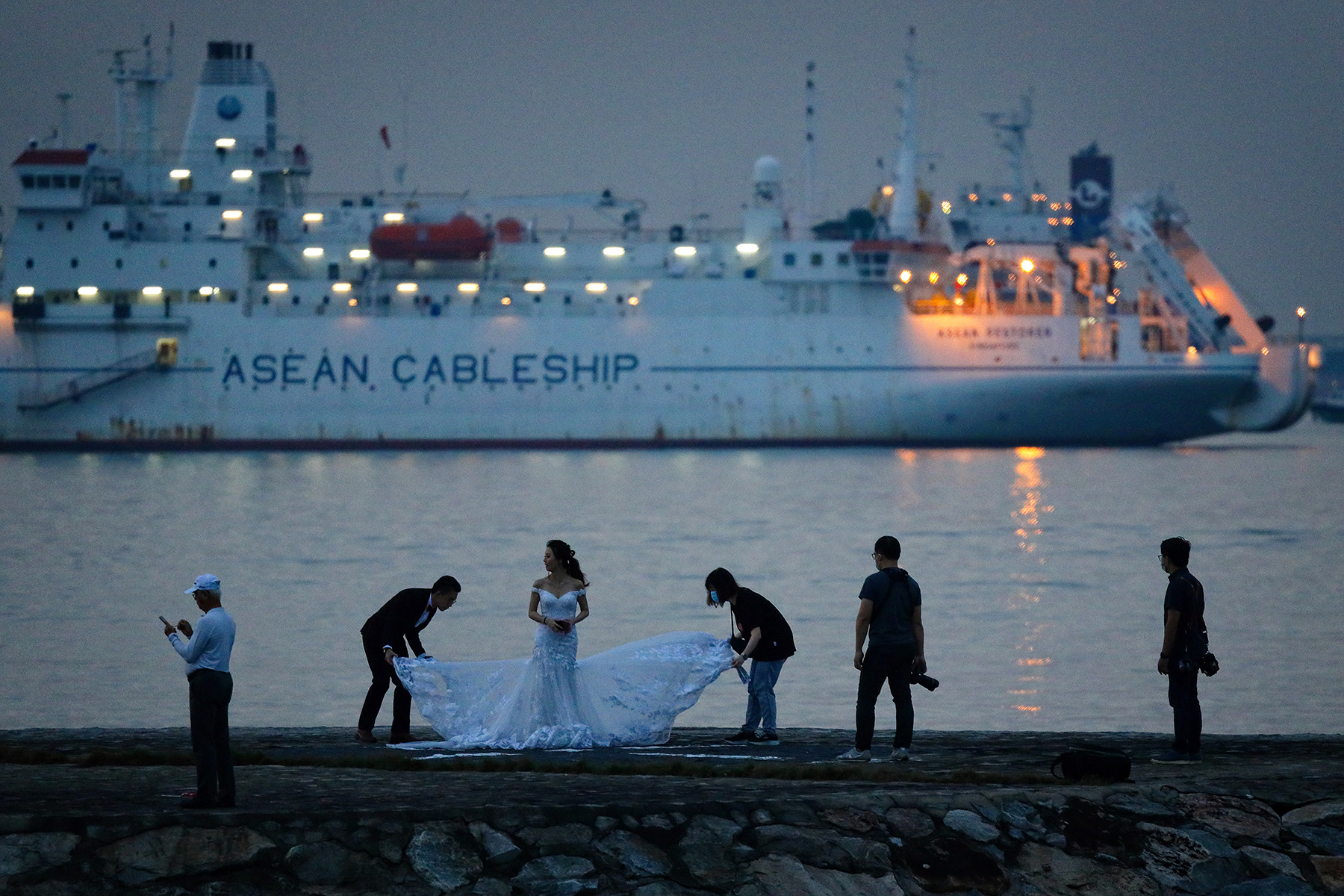
Top tip: You will need to have your solemnization within 12 months (one year) of notifying the ROM of your intent to marry. After this time, your license will expire.
For Muslim Weddings:
- Notify the ROM of your intent to marry at least 21 days before the ceremony but no more than three months before.
- Get approval from the wali (bride’s legal guardian), who must complete certain formalities during the wedding.
- Decide whether to attend the optional marriage preparation program.
- Choose a date, time, and place for the solemnization.
- Pick two witnesses (male Muslims over 21 years) to legalize the marriage.
- Decide on the Maskahwin (a gift from the groom to the bride, to be given after the solemnization) and whether a Hantaran (gift from the groom to the bride’s family) is necessary.
- Choose a Kadi or Naib Kadi (official celebrant for Muslim marriages).
- File the marriage application with all the necessary documents.
- Attend a Bersamamu (face-to-face counseling session) with your Kadi or Naib Kadi.
- Attend an appointment at the ROM to verify your documents and sign the Statutory Declaration.
- Complete the solemnization and receive your marriage certificate.
At the ceremony:
- Prepare and bring the necessary documents (including passports)
- Exchange vows (and rings!)
- Sign two copies of the wedding certificate with the solemnizer and two witnesses
- Ensure you take the colored copy of the certificate with you (the solemnizer will take the white copy to the ROM to register the marriage)
In addition to the above, there is a slightly different procedure for minors intending to have a wedding in Singapore. There are two processes: one for minors under the age of 18 and another for those under 21.
Which expenses should you consider when getting married in Singapore?
A major part of planning your Singapore wedding is considering the costs. After all, a big white wedding does not come cheap, especially in a country that is among the world’s most expensive. In fact, the average wedding in the Lion City now costs between SG$30,000 and SG$50,000. Though, of course, depending on how fancy you go, costs could skyrocket up to some SG$100,000.
Of course, the first thing to consider is the administrative costs. These are set by the Registry of Marriages, so they are necessary for any Singapore wedding. Some of these fees might include:
- Marriage license: SG$42 (for Singaporeans)/SG$380 (for foreigners)
- Reregistration of overseas wedding: SG$75
- Duplicate certificate: SG$50
- Change of solemnization date: SG$25
- Special marriage license: SG$280
- Marriage license for minors: SG$280
Ceremony and reception costs
Of course, most couples want to throw a party for their big day. There are numerous expenses that your Singapore wedding could incur. For example, you might need to pay to hire a venue, outfits, catering, flowers, and photography.
Some savvy entrepreneurs have put together “Bridal packages” that offer a more cost-effective route. These usually include the bride’s wedding gown, groom’s suit, hair and makeup, and some photography. These packages generally cost SG$3000–7,000.
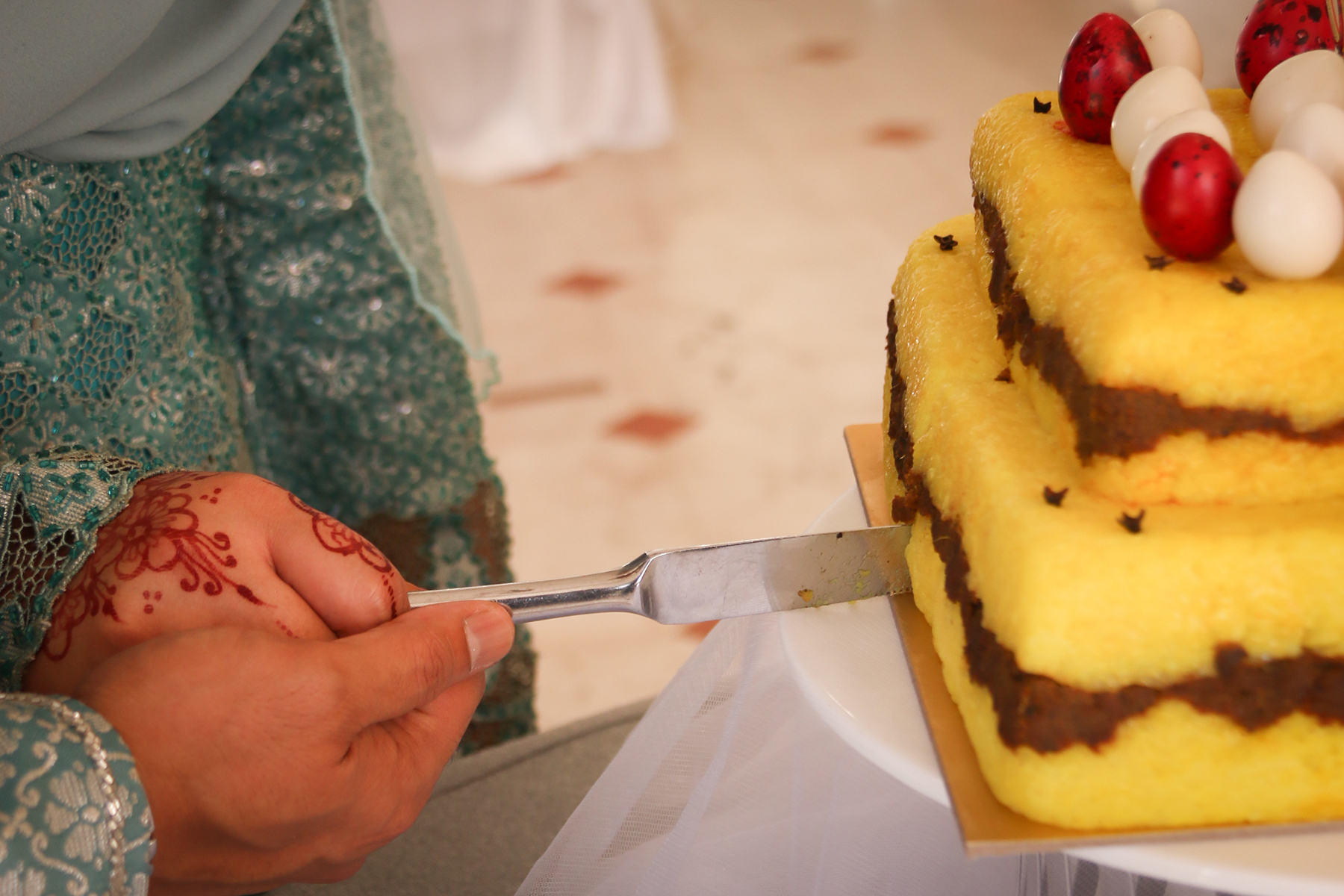
However, if you budget everything separately, these are the costs you might be looking at:
- Wedding banquet (includes venue and catering): SG$15,000 to SG$40,000+
- Wedding cake: SG$500–1,000
- Car rentals: SG$200–600
- Photography and videography: SG$2,000–6,000
- Makeup and hair: SG$350–758
- Flowers: SG$30–200 for bridal bouquets and SG$100–200 per centerpiece
- Entertainment: SG$450–4,000
Which are the best wedding venues in Singapore?
Geographically, the Lion City may be small, but it packs in plenty of places to throw a wedding. Here are a few of the most photogenic, sought-after places to consider.
Gardens by the Bay
Throw the Crazy Rich Asians Singapore wedding of your dreams under the colorful canopy of the Supertree Grove at Gardens by the Bay, where the movie’s iconic reception scene was filmed.
Not only is the futuristic location a one-of-a-kind backdrop to a wedding, but you will also get iconic views of the Marina Bay Sands building.
Faber Peak
A classic location for a wedding in Singapore, Faber Peak sits atop Mount Faber, allowing couples to exchange their vows with unparalleled views across Sentosa and the Harbourfront neighborhood. And, if you want a little rustic chic for your wedding theme, you can book the Arbora Garden for a dreamy garden setting.
Chijmes Hall
Crazy Rich Asians really exploited the best Singapore wedding locations, and this one is perfect if your dream white wedding involves a chapel. Chijmes Hall is a stunning, restored 19th-century Gothic chapel complete with soaring arched ceilings and stained glass windows.
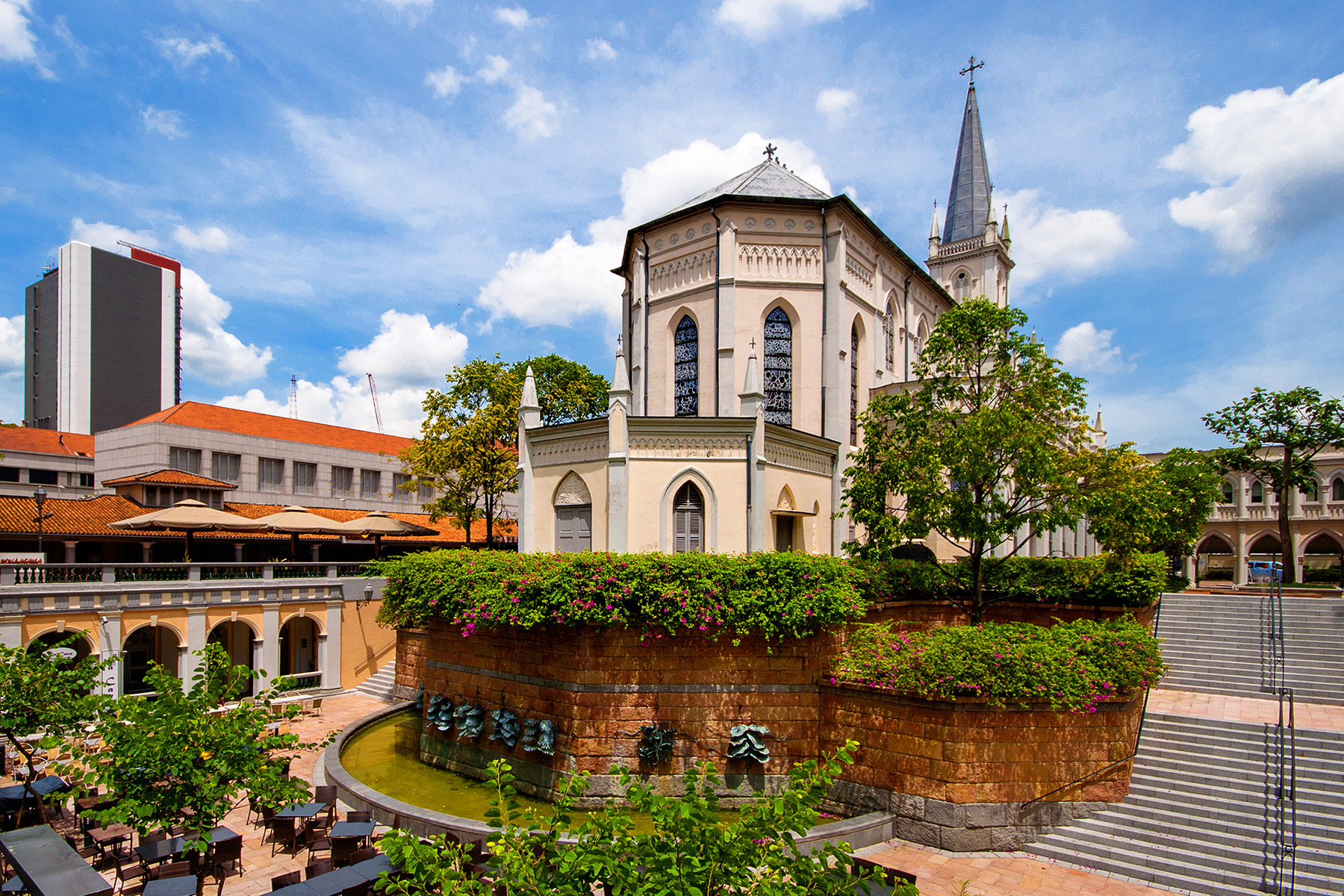
It’s up to you if you want to re-enact the scene with the water-filled aisle and gold-hued wedding dress, though.
The Fullerton Hotel Singapore
One of the city’s grand dame hotels, the Fullerton, packs old-world charm and elegance into its Palladian-style architecture that is over 100 years old. Set in the former general post office, the hotel regularly hosts regal weddings in its numerous ballrooms, many of which feature gourmet menus catered by the hotel’s award-winning culinary teams.
Burkill Hall
You might be hard-pressed to find a charming barn for a rustic wedding in Singapore, but the two-story, restored colonial bungalow of Burkill Hall might fulfill your country-chic aspirations.
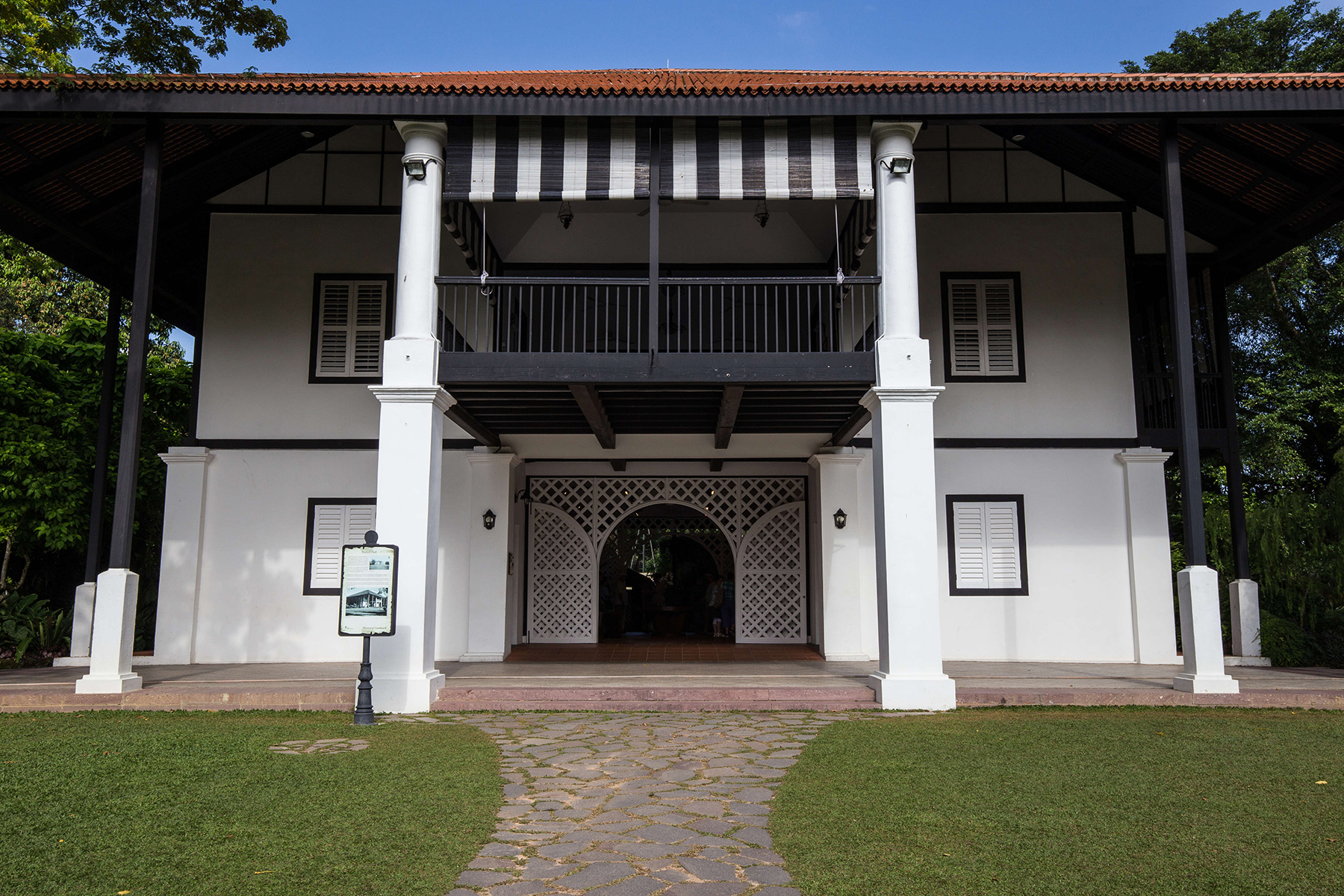
Furthermore, the hall is set within the National Orchid Garden of the Singapore Botanic Gardens, making it a truly idyllic natural setting for solemnizations and traditional ceremonies.
Resorts World Sentosa
No matter how you picture your wedding in Singapore, you will probably find the right location for it at this has-it-all venue. Perhaps it will be a kitsch ceremony filled with character appearances at the Universal Studios Singapore theme park, or maybe you will tie the knot against a backdrop of sharks, stingrays, and other sea creatures at the expansive S.E.A Aquarium. Resorts World Sentosa has glitz, glamour, and personality in spades!
Capella Singapore
One of the top choices for a hotel-based wedding, the resplendent Capella Singapore caters to all types of events. For a truly regal affair, though, book the Grand Ballroom – Singapore’s only circular ballroom, featuring a glass dome.
Singapore Zoo
Make your Singapore wedding truly unforgettable by hosting it at the city’s premier wildlife park. Animal enthusiasts can book a ceremony set within a rainforest ballroom surrounded by wildlife, while a Tiki Tent provides a more safari-style event. You can even get a private tram to ferry your guests around.
Singapore Botanic Gardens
Singapore’s first and only UNESCO heritage site offers a wealth of options for a wedding. Pick the Villa for a manor-style setting, the Forest Pavilion for immersion in the Learning Forest and lake, or the aesthetics of the historic white colonial architecture of the Botanico at the Grange.
Raffles Singapore
Where better to host a Singapore wedding than the city’s most historic hotel? After all, if it was good enough for Singapore’s founder, former Prime Minister Lee Kwan Yew, you know it’s top quality.
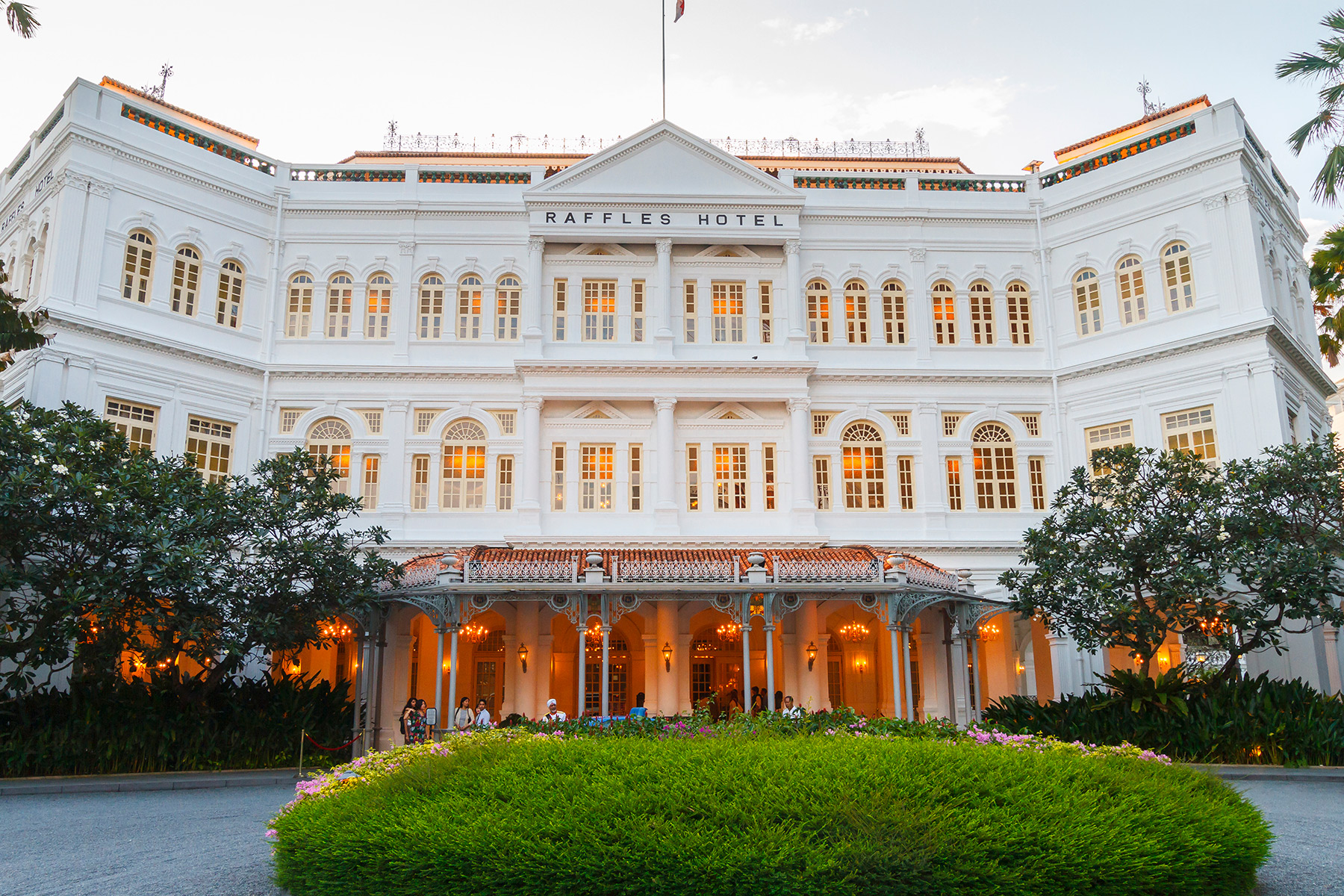
There are plenty of corners to host a ceremony, including the historic grand ballroom. It also features iconic experiences for your guests, such as enjoying a Singapore Sling in the Long Bar, where the cocktail was invented.
Are there any typical wedding traditions and customs in Singapore?
Because Singapore draws cultural influences from all over the world, there is no such thing as a traditional “Singaporean” wedding. Instead, you can expect a wedding in this city to include the customs of the couple’s cultural and ethnic backgrounds.
For example, an Indian wedding may include specific Hindu or Sikh rituals, while a Chinese wedding will include an array of Chinese traditions. Here are some to look out for depending on the particular type of wedding.
Chinese traditions
- Gatecrashing: On his wedding morning, the groom and his groomsmen will be put through a series of challenges at the bride’s house.
- Ang Pao (red envelopes): Instead of a wedding registry and home-starter gifts, the most common gift at a Chinese Singaporean wedding is a traditional red envelope stuffed with money. Usually, the amount should include an eight, such as SG$88 or $388, because this is considered lucky in Chinese culture. Avoid an amount with four, though – the number is unlucky in Chinese traditions.
- Yum Seng: There are wedding toasts, and then there’s the Yum Seng, a unique one where the entire room shouts “Yum,” holding it as long as they can, before following it with a quick “Seng” and a sip of champagne. The toast is intended to bestow luck on the couple, so expect to hear it three times in a row.
- Si Dian Jin: This is a bridal jewelry set that the groom’s mother traditionally gives to the bride as a betrothal gift and includes a necklace, ring, bracelet, and earrings.
- Tea Ceremony: This serving of tea is the official introduction of both sides of the family to each other. Usually, the bride and groom will serve their elders tea as a sign of respect and receive red envelopes or gold gifts.
Indian traditions
- Mehndi: This is a fun ceremony mainly for the bride and her female friends. A natural die, henna, is used to paint the bride’s hands and feet in intricate patterns that last for weeks. Traditionally, the darker the stain, the happier the marriage will be.
- Sangeet/Garba: Another fun ceremony, this one sees the bride and groom’s friends and family go head-to-head in a series of challenges. Normally, these are dance-offs and singing competitions, but modern couples may incorporate different competitions – think beer chugging and chili eating!
- Red outfits: Instead of the white traditional in European weddings, Indian brides usually wear a red sari or lengha for their big day. The same rule of not wearing the same color as the bride applies, though – guests should avoid wearing red.
- Baraat: The groom usually makes a grand processional entrance – sometimes on an elephant, but sometimes on a horse or in a car.
- Kanya Aagaman: This is the moment in the wedding ceremony where the bride makes her appearance – traditionally, male relatives or close male friends carry the bride in on a palanquin.
- Stealing the shoes: During the wedding reception, the bride’s friends and family sometimes steal the groom’s shoes – he will then need to pay up or complete a challenge to get them back.
Malay traditions
- Hantaran: This is a gift from the groom to the bride’s family given during the Muslim Nikah (solemnization) ceremony. The bride follows this with a dulang (a gift from the bride to the groom’s family).
- Adat Berinai: Like the Indian Mehndi, this is a henna ceremony where the bride has intricate patterns painted on her hands and feet
- Hadang: The Malay gatecrashing ceremony kicks off the wedding.
- Kompang: Similar to an Indian Bahraat, this is the groom’s procession into the wedding.
- Baju Melayu: This refers to the traditional Malay outfits that the bride and groom wear for their wedding.
Useful resources
- Registry of Marriages – official government website for Singapore weddings
